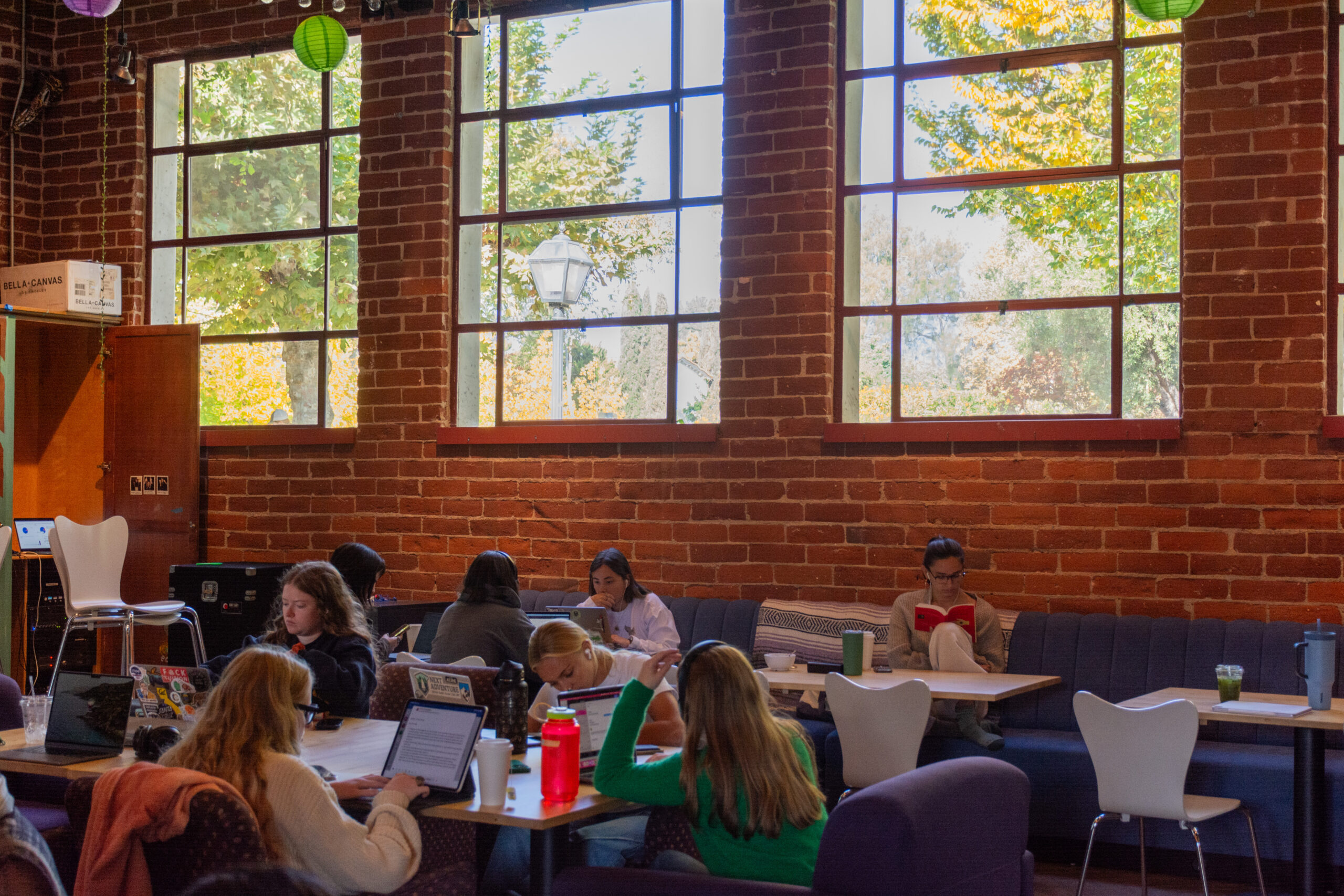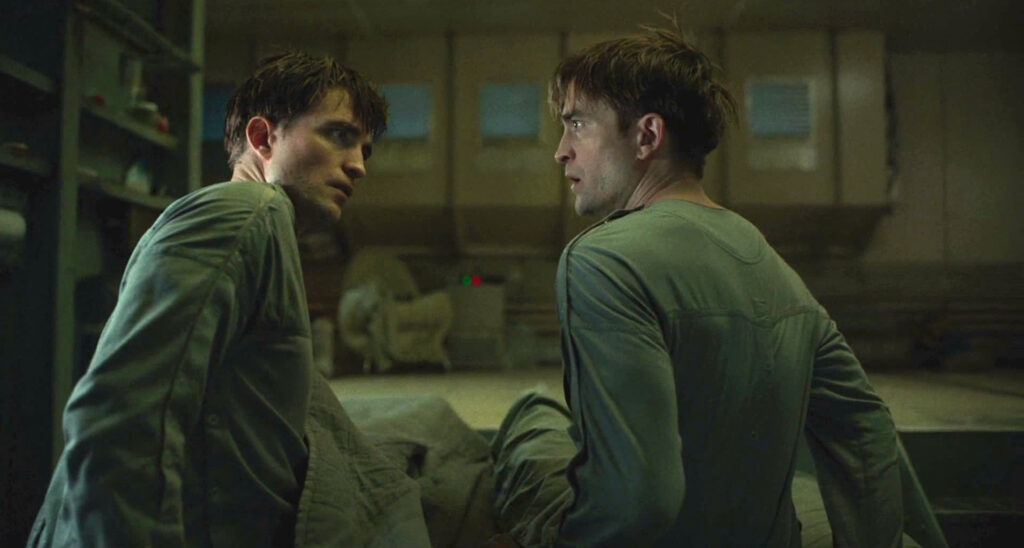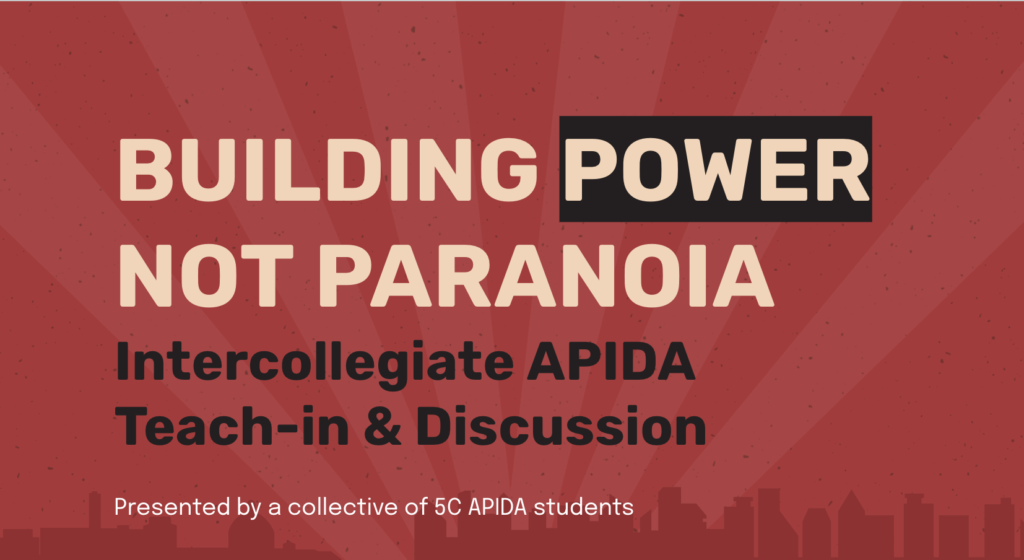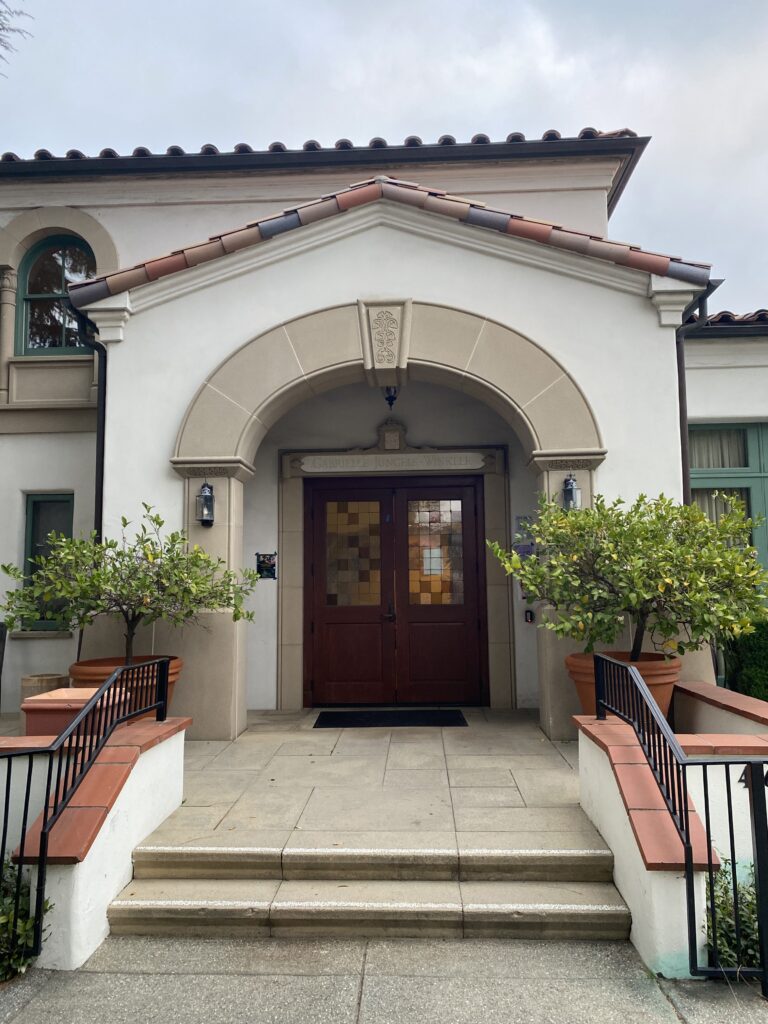Leah Gorence ’28
Staff Writer
One month after closing The Motley Coffeehouse, Scripps President Amy Marcus-Newhall announced its reopening on Nov. 5 in an email to the student body.
While many members of the student body were happy to have the student space back, Scripps administration had certain conditions for the reopening. Now, instead of the vibrant student art and other decorations that were once proudly featured in the space, The Motley walls are completely blank.
“The blank walls are honestly one of the most depressing things and uncharacteristic of the ethos of The Motley,” a Motley manager, who asked to remain anonymous, said in an interview.
The Motley was forced to close on Oct. 5 due to the administration initially finding the display of the Palestinian flag out of compliance with the college’s posting policy outlined in Code 4.1 of the Code of Conduct, as stated in the Motley Barista Statement. In a meeting with administration, the Motley was given a choice between issuing an open call for submissions, where an administrator would decide what would be appropriate, or opening with blank walls. In a Motley town hall meeting hosted on Nov. 12, a Motley manager said that “The Motley’s decorations have never before required the college’s approval.”
At the town hall, the staff maintained their willingness to engage in discourse with the administration, saying, “We wanted to find a way for our decorations to stay up in the space and for us to maintain our autonomy in a way that would be amenable to the college.”
Immediately before the closure, Motley managers expressed to the administration that they were looking forward to continuing the conversation about the Motley decoration policy in a productive and meaningful way. The Motley staff received no prior notice of the Motley’s closure and were made aware of it at the same time as the general student body.
What became immediately apparent when speaking to Scripps students about The Motley was that this was about so much more than a coffeehouse. “When The Motley is not open at the beginning of the semester, which is just inherent in our hiring process, Scripps is dead,” a Motley manager said. “Seal Court is depressing, and pretty consistently more empty.”
The Motley is the beating heart of campus.
In an interview via email, a Motley barista echoed this thought. “This is a place where I can show up, exist, and run into all these people I care about,” they said. “That’s what a community space is. Otherwise, people hole up in their rooms, and I never see them.”
The closure of The Motley was also innately more challenging for minority students, who may feel like they lack other community spaces on campus. The interviewed barista, who identifies as a queer person of color, elaborated on this position. “Scripps College is not an institution with many community spaces, especially for marginalized students (particularly Black and Brown students, other students of color, and working-class students) trying to find a sense of belonging at a predominantly white and wealthy institution,” they said. “This college, like so many, has a history of draining and constraining spaces for marginalized students.”
Reflecting on the impact of other impositions on The Motley, the barista highlighted how the removal of decorations and art can contribute to loss of ownership over the space, which once felt so accepting and empowering. “We had to take down art that said ‘Black Lives Matter’ and ‘Trans Lives Matter,’” the barista said. “We also had to take down art that called attention to violence as a result of imperialism in the Congo and Sudan, as well as Palestine. There was art that was created and donated by affinity groups like Café Con Leche [a Latinx student affinity group]. These give marginalized students a sense of safety, belonging, and brightness.”
Staff feelings surrounding the reopening are mixed. “It’s great that we have the space back,” the manager said. “It’s bitter that it’s not under our terms. It’s bitter that we had to open with blank walls. It’s bitter that The Motley has always been an autonomous space, and now it’s not.”
Many students and Motley staff recognize the removal of student art as a repression of student autonomy and expression over the space.
At The Motley town hall meeting, one student had written that the space now felt, “like an admin’s office.” Now that The Motley no longer has the autonomy to decide what can and cannot be put up in their business, the student-run space feels less so. “Students aren’t oblivious, we know what it feels like when a space is for and by us, and we know when that autonomy is being restricted,” the barista said.
Scripps’s administration has prided itself on The Motley’s history as a place of intersectional feminism and political activism. However, the administration’s celebration of The Motley’s activism seems to fall under the category of the Palestinian exception, part of a growing repression of Palestinian advocacy. “The college is all for independence, courage, and critical thought until it comes into conflict with its profit or donors,” the barista said.
Motley baristas explained that by forcing The Motley to take down the Palestinian flag, the administration is undermining its history of student expression. “The Motley has always been political,” the manager said. “To classify it as anything different is to completely shift the entire ethos that Scripps has been promoting for years.”
“In my opinion, in 10 or 20 years the Claremont Colleges will be saying how proud they are of the students who stood up for justice,” the barista said.
As of the time of this writing, The Motley remains in this state of limbo, where they are open but not on their terms. “It is absurd, and a reflection of the political repression in this country and across the 5Cs that merely hanging a flag that represents people experiencing genocide would merit a shut down,” the barista said. As The Motley and the administration continue to engage in discourse surrounding The Motley’s expression, it is imperative that students support in whatever ways they can.
“I’m glad it’s reopened but the fight for the space is not over,” the barista said.
The Claremont Student Worker Alliance (CSWA) has been active in their advocacy for The Motley student workers. The barista stressed the importance for students to oppose the bans placed on students at Pomona for allegedly participating in a pro-Palestinian protest — a majority of whom are first-generation, low income, students of color.
The fear is a future where The Motley is surveilled and sanitized. But students continue to stand up for what they believe The Motley’s future should look like. At a recent town hall meeting about The Motley’s reopening, participants were encouraged to write how they felt about the space on a sheet of white butcher paper displayed in the space. The responses varied. One piece of writing stated: “Inspiring – The empty space is for us to fight.”
Photo Courtesy: Claremont Undercurrents





